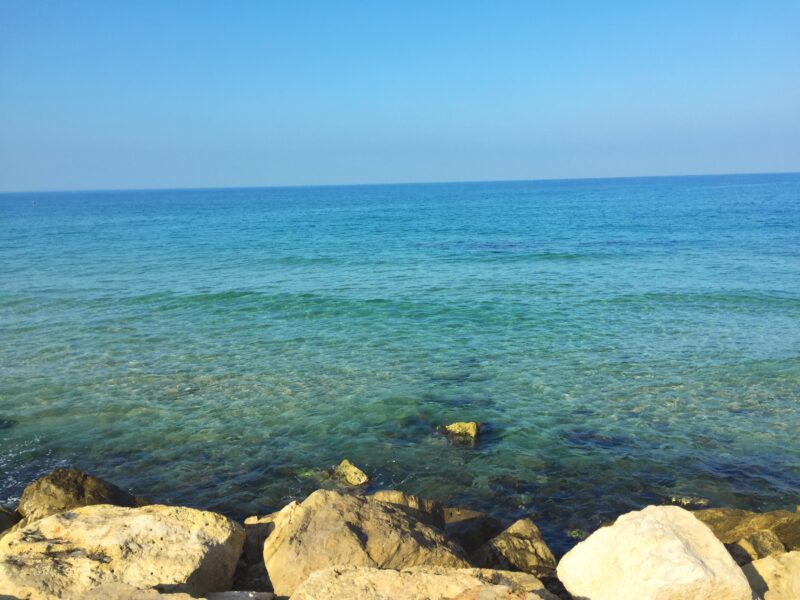“I heard you in the other room asking your mother, ‘Mama, am I a Palestinian?’ When she answered ‘Yes’ a heavy silence fell on the whole house. It was as if something hanging over our heads had fallen, its noise exploding, then—silence.”
—Ghassan Kanafani, in a letter to his son Fayez
I don’t mean to hate the sparrows.
I don’t mean to close my eyes and see fire, a flood of concrete,
leaflets the size of grotesque snow.
I don’t mean to rehearse evacuation that isn’t mine:
from the grocery store to the house, from the house to the river,
from the river to the airport. Here are the rules.
There is a road and it’s gone now.
There is a sea and you can’t drink its water.
How far can you carry a toddler? A middle-aged dog?
How far can you go in sixty-five seconds? Eleven?
If you have a favorite flower, now’s the time to redact it.
If you have a mother, now’s the time to move her to the basement.
If you don’t have a basement?
I don’t mean to profit from this poem but I do.
I don’t mean to say I but I do. Here are the rules.
The rules are redacted.
[ ] is [ ].
[ ] is a red herring.
[ ] is a billboard with 583 names.
Here are the rules.
I had a grandmother once.
She had a memory once.
It spoiled like milk.
On the phone, she’d me ask about my son, if he was fussy,
if he was eating solids yet.
She’d ask if he was living up to his name.
I said yes. I always said yes. I asked for his name and it was [ ].
I dreamt of her saying:
[ ]
[ ]
[ ].
How deep in the earth can you burrow with your four hearts? Here are the rules:
There is no bomb shelter. There is no ship.
You can leave. Why aren’t you leaving?
You can resist. Why aren’t you resisting?
On the phone, my grandmother would call me her heart.
Her soul. Her two God-given eyes.
She’d ask if I wanted to visit Palestine again.
I never brought her back any soil, but she liked one story,
so I’d tell it again, about the man I met at the
bus station, a stranger until he spoke Arabic,
calling me sister and daughter and sister and I told her how
he skipped work and drove me past the
gardens to the highest point and we waved to Beirut.
I waved to her, and later she said she was waving back.
Never mind her balcony faced the wrong direction.
Never mind the sea a terrible blue.
Never mind there never was a son. Here are the rules:
If you say Gaza you must say [ ].
If you say [ ] you must say [ ].
Here are the rules.
If there is a microphone do not sing into it.
If there is a camera do not look it in the eye.
Here are the rules.
You can’t redact a name once it’s been spoken.
If you say [ ] you must say [ ].
If you say Gaza, you must say Gaza.
If you look, you must look until there is no looking left to do.
Here are the rules. Here’s my mother-given name, here’s my small life.
It is no more than any other. Here’s my grandmother, dead for five years.
She’s speaking again. She calls when I’m not expecting.
Keef ibnik, she says. Where is he now? Let me say hello.
What could I say back? He’s good, I tell her.
I pretend to call a child from the other room.
I pretend to hear the sea from here. I wave back. Here are the rules:
We bear what we bear until we can’t anymore.
We invent what we can’t stand grieving.
The sun sets on Gaza. The sun rises on Gaza.
On your [ ].
On your blue pencils.
On your God-given eyes.
He’s good, I tell her. He’s good.
He’s crawling. Mashallah, mashallah.
Together, we praise the sea and the son.
Together, we praise how much he’s grown.

